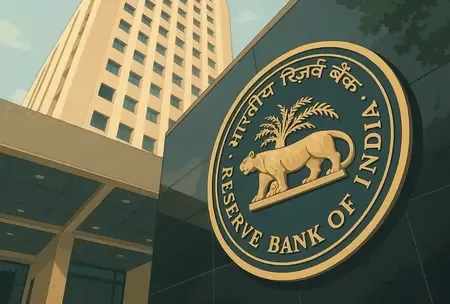How do India’s academia–industry linkages empower young scholars to innovate?

Synopsis
Key Takeaways
- AcSIR's 'i-PhD' program links imagination with industry.
- Over 7,000 students enrolled, supported by 3,100 scientists.
- Emphasis on translational research for startups.
- Encourages youth to pursue research and innovation.
- Aligns with India's goal of becoming a Viksit Bharat.
New Delhi, Nov 23 (NationPress) India is making significant strides in fostering academia–industry linkages that enable young scholars to unleash their creativity and innovation while actively participating in emerging industrial fields, asserted Union Minister of State (Independent Charge) for Science and Technology, Jitendra Singh, on Sunday.
While speaking at the ninth Convocation of the Academy of Scientific and Innovative Research (AcSIR), the Minister highlighted that the newly introduced 'i-PhD' program by AcSIR in 2023 stands as an innovative academic model that connects imagination and industry.
The 'i' in i-PhD not only signifies industry but also embodies imagination and innovation, added Minister Singh.
Each i-PhD scholar is required to create a technology that is pertinent to translational research or startups, aligning India's research education directly with industrial demands, he noted.
The Union Minister further stated that AcSIR symbolizes a holistic entity, merging science, education, governance, and national ambitions, in line with India's vision for a 'Viksit Bharat'.
He pointed out that AcSIR's rapid evolution signifies the increasing emphasis placed on science and innovation under Prime Minister Narendra Modi's guidance, where scientific thought has become pivotal to India's economic development, technology initiatives, and global standing.
The Minister emphasized that AcSIR currently accommodates nearly 7,000 students, guided by over 3,100 leading scientists across 79 campuses, establishing it as one of India's most varied and multidisciplinary research environments.
He explained that the institution has effectively transformed into a 'shared national university', attracting scholars and faculty from diverse fields nationwide, and increasingly acting as a platform for research discussions, knowledge sharing, and collaborative exploration.
Minister Singh remarked that the inception of AcSIR was a daring and innovative venture, aiming to create a systematic pathway for research that crossed traditional academic limits.
"Initially, many may not have grasped the concept," he acknowledged, "but the swift expansion of campuses and the increasing demand demonstrate that the nation was prepared for such an establishment."
The Minister noted that AcSIR's achievements are not solely due to administrative backing but also stem from the zeal of India's youth, who are embracing research and innovation as fulfilling and aspirational career paths for startups and sustainable livelihoods.
He concluded by asserting that programs like these provide researchers with a viable future, enabling them to contribute to society as entrepreneurs, consultants, and technology innovators.
Minister Singh emphasized that as India transitions from being the world's fifth-largest economy to potentially becoming the leading global economy, it will be entirely fueled by innovation, technology, and industry.
He stated that AcSIR's scholars will have the chance to be the 'torchbearers' of this journey, influencing India's advancements in deep tech, health research, sustainable agriculture, climate science, and cutting-edge technologies.









